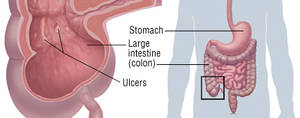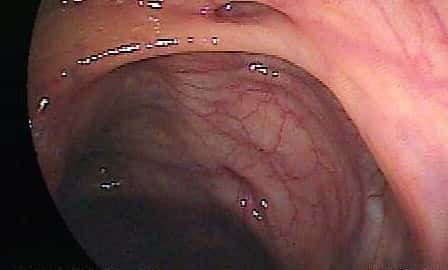A colonoscopy is a medical procedure used to examine the inner lining of the large intestine (colon and rectum). It helps detect polyps, tumors, inflammation, and early signs of colorectal cancer. Proper preparation is crucial because an unclean colon can obscure visibility, requiring a repeat procedure.
Adherence Rates to Pre-Colonoscopy Instructions
| Adherence Level | Percentage (%) |
|---|---|
| Followed All Instructions | 70% |
| Missed Some Steps | 20% |
| Did Not Follow Instructions | 10% |
This chart illustrates adherence rates to pre-colonoscopy instructions. Following all steps is crucial for accurate results, yet a significant portion of patients miss some steps or do not follow instructions at all.
Step 1: Consult Your Doctor
Before starting any preparation, discuss your health history, medications, and dietary restrictions with your doctor. Certain medications, such as blood thinners or diabetes drugs, may require adjustments. Your doctor may also advise stopping iron supplements, as they can darken the colon and make it harder to examine. If you have a history of digestive disorders, inform your doctor so they can tailor the preparation plan to your specific needs.

Step 2: Modify Your Diet
- Five Days Before: Reduce fiber intake. Avoid whole grains, nuts, seeds, and raw fruits/vegetables. Begin eating softer, easier-to-digest foods like white rice, chicken, and yogurt.
- Two Days Before: Transition to a low-residue diet with well-cooked foods, eggs, and white bread. Avoid tough meats, beans, and dairy if you are lactose intolerant.
- One Day Before: Adopt a clear-liquid diet. Acceptable options include:
- Water
- Clear broth (chicken or beef)
- Apple or white grape juice (no pulp)
- Clear sodas (ginger ale, lemon-lime soda)
- Black coffee or tea (no milk or cream)
- Sports drinks (avoid red, blue, or purple colors)
- Gelatin (only light-colored, non-red flavors)
- Popsicles (must be clear and non-dairy)
- Coconut water (without pulp)

Step 3: Bowel Preparation (Laxative Cleansing)
- Your doctor will prescribe a bowel prep solution, usually containing polyethylene glycol (PEG) or sodium phosphate.
- Typical Schedule:
- Evening Before the Procedure: Start drinking the laxative mixture in divided doses. Some doctors recommend drinking half the solution the night before and the other half in the morning to ensure thorough cleansing.
- Morning of the Procedure: Finish the remaining laxative solution as instructed. If you have difficulty tolerating the taste, try drinking it chilled or through a straw.
- Expect multiple bowel movements, so stay near a restroom. You may also experience mild cramping or bloating, which is normal.
- Use soft toilet paper or cleansing wipes to prevent irritation, and consider applying a soothing ointment if needed.
Step 4: Hydration and Electrolyte Balance
- Drink plenty of fluids to prevent dehydration, especially since the bowel prep process can deplete fluids quickly.
- Consider electrolyte drinks or rehydration solutions to maintain balance and prevent dizziness or weakness.
- Avoid caffeinated beverages, as they can contribute to dehydration.
Step 5: Adjust Medications if Necessary
- Follow your doctor’s advice on whether to pause or modify specific medications.
- Diabetic patients should coordinate insulin doses to avoid hypoglycemia. Since fasting is required, your doctor may adjust your medication regimen to prevent low blood sugar episodes.
- If you take medications for heart conditions, seizures, or mental health conditions, consult your doctor to determine whether they should be taken with a small sip of water on the day of the procedure.
Reasons for Colonoscopy Appointment Rescheduling
| Reason | Percentage (%) |
|---|---|
| Incomplete Bowel Preparation | 45% |
| Scheduling Conflicts | 30% |
| Sudden Health Issues | 15% |
| Anxiety/Personal Reasons | 10% |
This chart highlights the main reasons for rescheduling colonoscopy appointments. Incomplete bowel preparation remains the leading cause, followed by scheduling conflicts and sudden health issues.
Step 6: What to Wear and Bring
- Wear comfortable, loose-fitting clothing, as you may feel bloated after the procedure.
- Bring a companion to drive you home, as sedatives used during the procedure impair coordination and judgment.
- Consider bringing extra undergarments or sanitary wipes for added comfort during the prep phase.

Step 7: The Day of the Procedure
- Stop consuming any liquids at least 4-6 hours before the scheduled procedure to ensure an empty stomach for sedation.
- Arrive early at the medical facility for check-in. The medical team will review your history and confirm your preparation steps.
- Expect mild discomfort, bloating, or gas after the procedure. Walking and drinking fluids can help alleviate post-procedure bloating.
- You may feel groggy due to sedation, so plan to rest for the remainder of the day. Avoid driving, operating machinery, or making important decisions for at least 24 hours.
Editorial Advice
Reyus Mammadli, healthcare advisor, recommends strictly following the preparation guidelines to ensure a smooth and successful colonoscopy. Neglecting prep steps can lead to inconclusive results, requiring a repeat procedure. If you experience severe discomfort or unusual reactions to the laxative, contact your doctor immediately.
Complications Reported After a Colonoscopy
| Complication | Percentage (%) |
|---|---|
| Minor Bloating/Gas | 70% |
| Mild Cramping | 20% |
| Bleeding (Small Amount) | 7% |
| Serious Complications | 3% |
This chart presents common complications reported after a colonoscopy. Minor bloating and gas are the most frequent, while serious complications remain rare.
To make the process more manageable, prepare for the prep phase in advance by clearing your schedule, stocking up on approved liquids, and setting up a comfortable space near the restroom. By following these instructions, you’ll optimize the effectiveness of your colonoscopy and contribute to better digestive health.
References
- American College of Gastroenterology. “Colonoscopy Preparation Guide.” Accessed 2024.
- Mayo Clinic. “Colonoscopy: What You Need to Know.” Updated 2023.
- National Institute of Diabetes and Digestive and Kidney Diseases. “Bowel Prep for Colonoscopy.” Accessed 2024.
- U.S. Preventive Services Task Force. “Colorectal Cancer Screening Guidelines.” Updated 2023.









My sister would like to try the colonoscopy procedure because this will help detect whether she is suffering from colorectal cancer. I appreciate that you shared this; at least now we’re aware that she must not eat any solid foods before the colonoscopy surgery. It’s also a good thing that you shared here the importance of drinking enough fluids regularly.